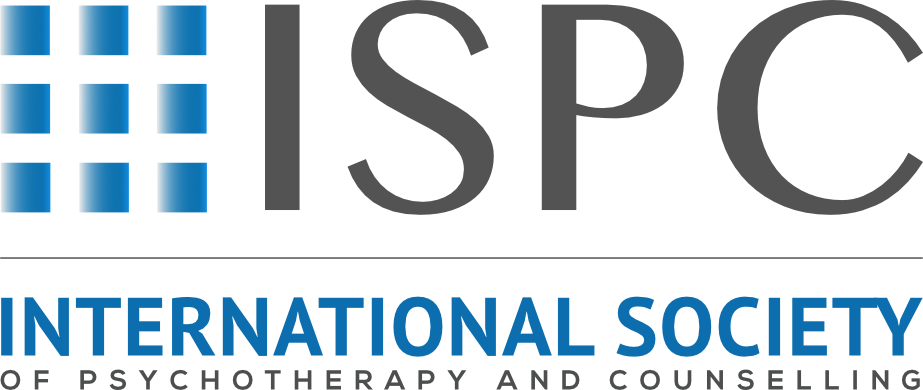Navigating Technology, Demand, and Integration
Article authored by James Durdan
The field of counselling and psychotherapy in the UK is in a state of dynamic evolution. Shaped by global events, technological innovation, and shifting societal attitudes, the profession is moving towards a future that is both more accessible and more complex. The conversation is no longer about whether therapy is needed, but how it can be delivered effectively, ethically, and equitably in a landscape of unprecedented demand and technological change. For the ISPC and its members, understanding and adapting to these shifts is not just an opportunity for growth—it is an imperative for continued relevance and excellence.
The Seismic Shift: A Post-Pandemic Mental Health Awakening
The most significant catalyst for change has been the COVID-19 pandemic. It accelerated pre-existing trends, pushing digital adoption from a convenience to a necessity and profoundly impacting the nation’s mental health. NHS figures show a substantial rise in people accessing mental health services, with referrals to mental health services in England reaching a record 5.2 million in 2024, a 37.9% increase since 2019. This surge in demand, coupled with persistent staffing shortages and funding gaps, has placed immense pressure on both public and private providers.
This post-pandemic “mental health awakening” has been a double-edged sword. On one hand, it has dramatically reduced the stigma surrounding mental health issues, with recent surveys showing a significant decrease in the number of people who believe there is a stigma attached to counselling. On the other, it has exposed the profound inequalities in access to care. Economic pressures, particularly the rising cost of living, have placed a heavy burden on individuals and families, exacerbating mental health challenges and highlighting the need for affordable and readily available support.

The Digital Revolution: Reshaping the Therapeutic Landscape
Digital technology is the most visible and transformative force reshaping the future of therapy. From the ubiquitous video call to sophisticated AI chatbots, the tools available to therapists and clients are expanding rapidly. This has opened up new possibilities for flexible and remote delivery, allowing practitioners to reach clients who might otherwise face geographical or accessibility barriers.
Online and Remote Therapy: While face-to-face therapy remains the most popular format, video and other virtual communication methods are becoming increasingly common. This shift offers benefits like convenience and the ability for services to be delivered more efficiently, potentially freeing up therapist time. However, it also raises important questions about digital inequality. Clinicians must ensure technological support is provided to prevent individuals from being excluded from digital services.
AI and Machine Learning: The emergence of artificial intelligence (AI) in mental healthcare is a source of both excitement and concern. AI-driven tools are being developed to streamline the assessment process, provide immediate support, and help therapists monitor patient progress. For example, AI can help predict which patients are most likely to benefit from certain treatments, a concept known as “stratified care”.
However, the ethical implications of AI in therapy are significant. Concerns around data privacy, potential biases in algorithms, and the possibility of AI “hallucinations” delivering inaccurate information all need to be carefully navigated. While AI is unlikely to replace human therapists, it will undoubtedly change their role, requiring them to integrate and oversee these new technologies effectively.
Integration and Personalisation: A More Holistic Approach
The future of counselling is not just digital; it is also deeply integrated and personalised. The traditional model of isolated therapeutic sessions is giving way to a more holistic, “whole-person” approach that recognises the complex interplay between mental, physical, and social factors.
Integrated Care: The NHS Long Term Plan, and the subsequent Community Mental Health Framework, has been a driving force behind this shift. The aim is to create integrated, place-based community mental health models where counselling and psychotherapy are seamlessly connected with physical healthcare, employment support, and other personalised care approaches. This represents a significant move away from the fragmented care that has often characterised mental health services in the past.
Personalisation and Specialisation: As therapy becomes more integrated, it will also become more personalised. Therapists will increasingly focus on tailoring interventions to a client’s cultural identity, life stage, and unique circumstances. This will likely see a growth in specialist areas of practice, such as trauma-informed therapy, LGBTQ+ affirmative therapy, and specific interventions for children, adolescents, and older adults.

The Workforce of Tomorrow: Challenges and Opportunities
The demands of this evolving landscape place new pressures on the mental health workforce. The sheer volume of demand means that recruitment and retention are ongoing challenges. For therapists, this means both opportunities and risks.
Training and Development: Training for future therapists will need to adapt, incorporating new digital competencies and a broader understanding of integrated care models. There is a growing need for practitioners to develop a deeper understanding of cultural competence, neurodiversity, and the mental health impacts of social and economic issues.
Regulatory and Professional Challenges: As technology becomes more embedded in practice, professional bodies like ISPC.org.uk will play a crucial role in ensuring ethical standards are maintained. This includes providing guidance on the safe and effective use of digital tools and addressing the risks associated with data privacy and confidentiality. The ongoing debate over whether to formalise the regulation of titles like “therapist” will also shape the future of the profession.
Workplace Wellness for Therapists: The rising pressures on the mental health workforce necessitate a greater focus on therapist wellbeing. Burnout is a serious risk, and organisations must prioritise self-care strategies and robust supervision to ensure that practitioners can continue to provide high-quality care.
A Look Ahead: A Cautious Optimism
The future of counselling and psychotherapy in the UK holds both immense promise and significant challenges. While the drive towards a more accessible, integrated, and personalised system is laudable, it is happening against a backdrop of under-resourcing and a complex mix of societal pressures.
The role of professional bodies like ISPC.org.uk will be pivotal. They must lead the conversation on how to ethically integrate technology, advocate for equitable access to funding and services, and ensure that the core principles of compassionate, human-centred therapy remain at the forefront.
Ultimately, the future of therapy will not be a single, revolutionary breakthrough. It will be an evolution—a gradual process of adapting to new technologies, embracing integrated models of care, and continually striving to meet the ever-growing mental health needs of the UK population. For practitioners and clients alike, the path forward will require resilience, innovation, and a steadfast commitment to the transformative power of the therapeutic relationship.
Private Practice Websites and Integration
For private practitioners, navigating this technological shift necessitates a robust and professional online presence. Beyond a simple brochure, a well-designed website becomes a secure portal for attracting, onboarding, and retaining clients. Modern practice websites must seamlessly integrate online booking systems, secure payment gateways, and telehealth software that is both confidential and user-friendly. By showcasing online services prominently and providing clear, ethical guidance on the virtual therapeutic process, therapists can build trust with a new cohort of digitally-native clients. A professional online ‘shop window’ that is both mobile-friendly and search engine optimised (SEO) is no longer an optional extra but a critical tool for expanding a practice’s reach and ensuring its longevity.
For more information on SEO and Private Practice websites please get in touch with Swarming Bee Web Design.
We encourage all ISPC members to consider contributing to ISPC News and sharing their unique perspectives and insights. Your contributions help build a valuable resource for the therapy and counselling community.
And lastly, we appreciate those that have already come forward with their ideas and writings, we are uploading these blogs over the next few weeks and months.
Kindest Regards
ISPC Team








